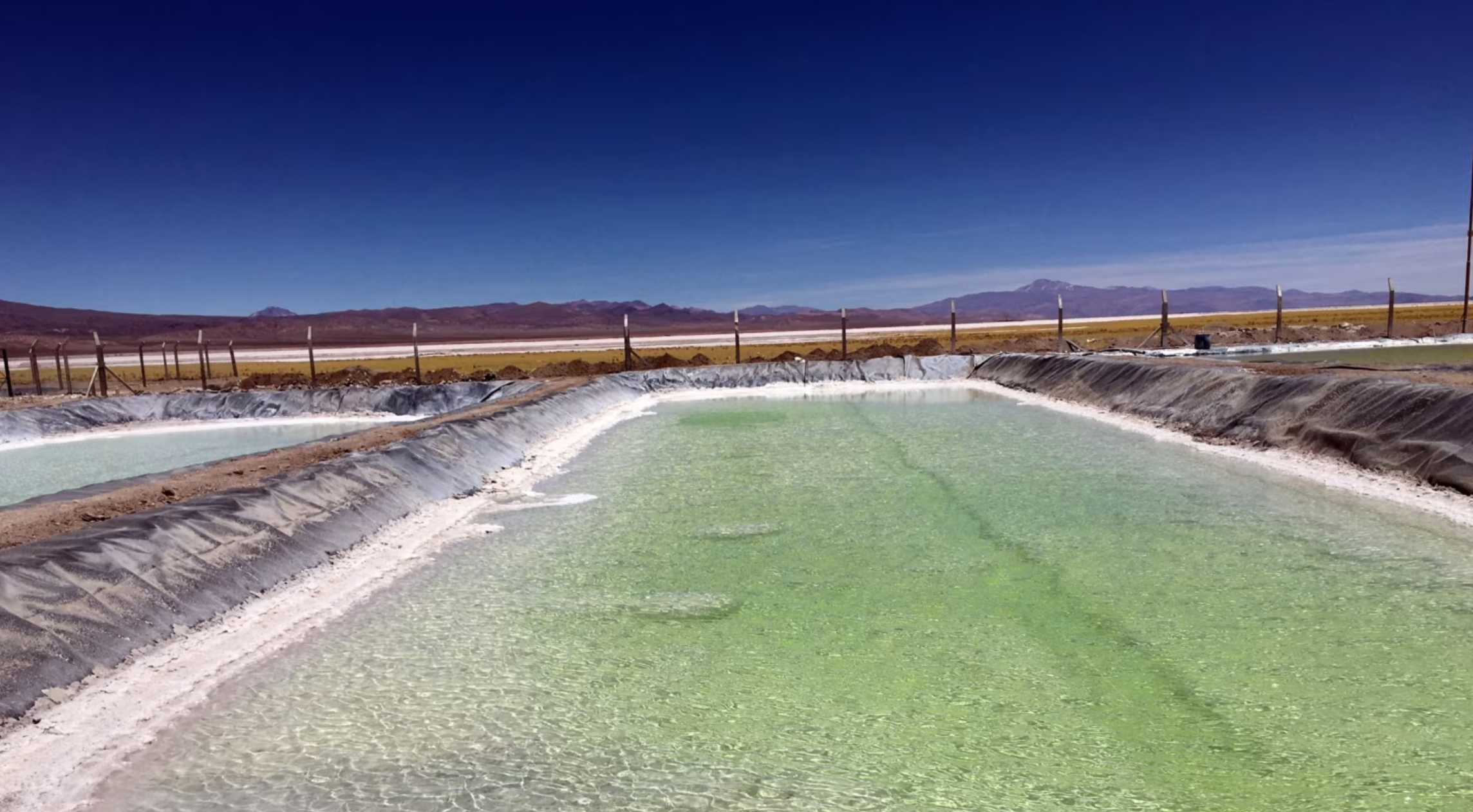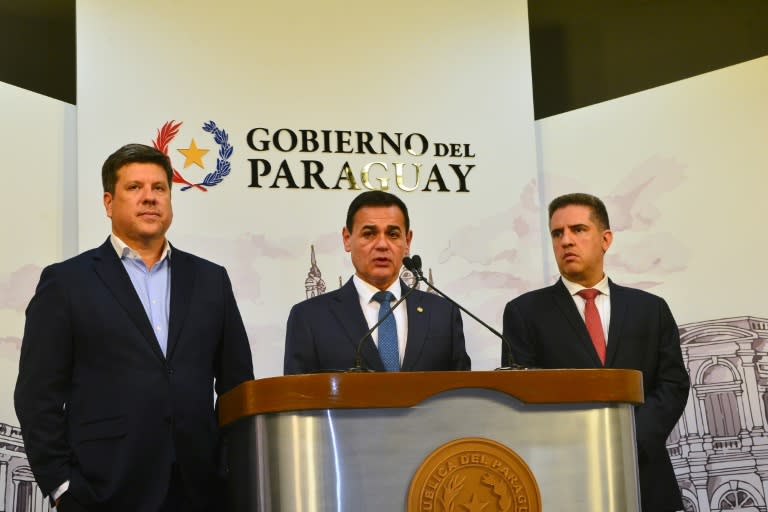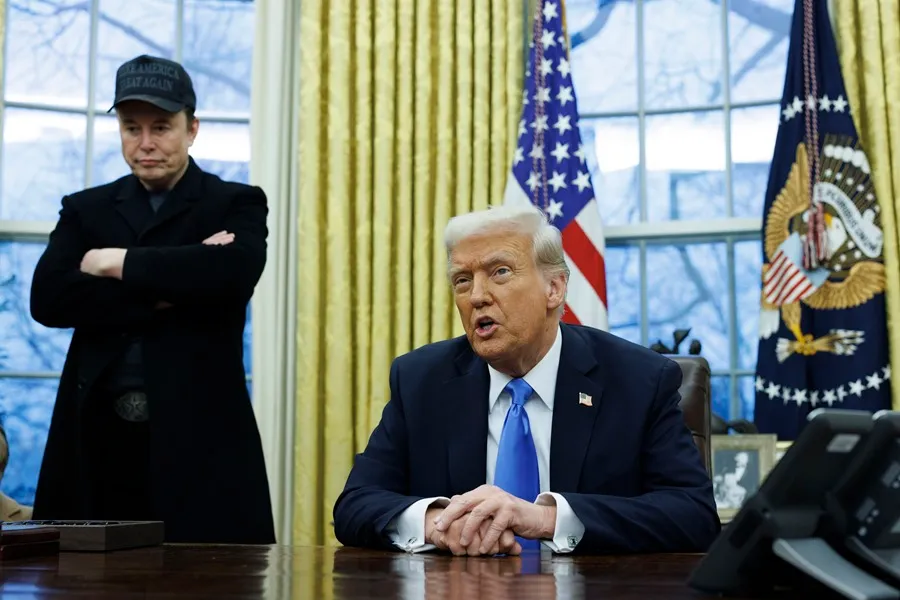International
Argentina’s lithium pipeline promises “white gold” boom as Chile tightens control

April 24 |
In Argentina’s mountainous north, a robust portfolio of lithium projects about to come online looks set to unlock a production wave that could triple its output of the key metal for electric vehicle batteries in the next two years.
The world’s fourth-largest producer of the silvery-white metal sits within the so-called “lithium triangle” and has been attracting investment from Canadian mining companies to ones from China with a regional and market-driven model, even as a wave of resource nationalism has swept through the region.
Neighboring Chile, the region’s top lithium producer, last week unveiled plans for a state-led public-private model, spooking investors. Bolivia has long maintained tight control over its huge but largely untapped resources, while Mexico nationalized its lithium deposits last year.
In Argentina, although state energy company YPF YPFD.BA began exploring for lithium last year, the sector has been driven largely by private enterprise and periodic approvals of new projects as the government has sought to attract more export dollars through mining, a rare bright spot amid the economic downturn.
“Argentina has been granting concessions to projects for the last 10 years,” said Franco Mignacco, president of the Argentine Mining Business Chamber. “That’s why today we have this level of lithium investment and development and the possibility of growth.”
Mignacco estimated that Argentina’s current production of 40,000 tons of lithium carbonate could triple by 2024-2025 to 120,000 tons, which could take it beyond China and closer to Chile, which currently produces about 180,000 tons per year.
That would be driven by new projects coming online in addition to the two currently in production. The country has six lithium projects under construction and 15 in advanced exploration or feasibility stage, Mignacco said.
Argentina, Bolivia and Chile together sit on half of the world’s mineral resources beneath otherworldly salt flats in the high-altitude Andean plains.
But strategies for developing it diverge.
“Argentina’s lithium sector has thrived through a decentralized pro-market strategy,” said Benjamin Gedan, director of the Latin America program at The Wilson Center, adding that, in contrast, Bolivia’s lithium sector “has repeatedly stagnated as a result of excessive state control.”
Chile, he said, may have found a “smart middle ground” with its public-private model, which would hand majority control of all new lithium projects to the state in a nationalist shift, but would still give private enterprise a key role.
The wave of resource nationalism has sparked some talk among officials of a possible OPEC-style lithium cartel in the region, although analysts see this as unrealistic given the industry’s diverse models and levels of development.
Meanwhile, Argentina faces challenges including economic turbulence with high inflation and capital controls complicating business, while the country heads into general elections in October, creating political uncertainty.
However, its lithium pipeline may keep the sector buzzing and even gain ground on rivals. Overtaking neighboring Chile would be highly unlikely, but some analysts were aiming high.
“Chile today produces and exports much more lithium than Argentina,” said Natacha Izquierdo, an analyst at consultancy ABCEB. “But if the projects we have here today come to fruition, Argentina could overtake us.”
International
Paraguay summons Brazilian ambassador over Itaipú espionage scandal

Paraguay summoned the Brazilian ambassador in Asunción on Tuesday to demand “explanations” and called its own representative in Brasília for consultations following Brazil’s acknowledgment of an espionage operation. The Brazilian government, led by President Luiz Inácio Lula da Silva, attributed the operation to the previous administration.
The surveillance effort aimed to uncover Paraguay’s position in now-suspended negotiations with Brazil regarding the pricing of electricity from the binational Itaipú hydroelectric plant, according to reports in the Brazilian press.
The Brazilian government “categorically denied any involvement in the intelligence operation,” stating in a Foreign Ministry communiqué on Monday that the espionage was carried out under former President Jair Bolsonaro’s administration (2019-2023).
“The operation was authorized by the previous government in June 2022 and was annulled by the interim director of the (state intelligence agency) ABIN on March 27, 2023, as soon as the current administration became aware of it,” Brazil’s government asserted.
Paraguay’s Foreign Minister Rubén Ramírez announced that Brazilian Ambassador José Antonio Marcondes de Carvalho was summoned “to provide detailed explanations” regarding the operation. Additionally, Paraguay recalled its diplomatic representative in Brasília “to report on aspects related to the intelligence activity conducted by Brazil regarding Paraguay’s government affairs.”
International
Elon Musk to step down as government advisor, per Trump insiders

President Donald Trump has informed his inner circle that Elon Musk will be stepping down from his role as a government advisor, according to a report by Politico today.
Citing three individuals close to Trump, Politico states that the president is pleased with Musk’s leadership at the Department of Government Efficiency (DOGE), where he has implemented significant budget cuts. However, both have agreed that it is time for Musk to return to his businesses and support Trump from a different position outside the government.
A senior administration official told Politico that Musk will likely maintain an informal advisory role and continue to be an occasional visitor to the White House. Another source warned that anyone thinking Musk will completely disappear from Trump’s circle is “deluding themselves.”
According to the sources, this transition is expected to coincide with the end of Musk’s tenure as a “special government employee,” a temporary status that exempts him from certain ethics and conflict-of-interest regulations. This 130-day period is set to expire in late May or early June.
International
Milei vows to make Argentina so strong that Falkland Islanders “choose” to join

Argentine President Javier Milei reaffirmed his country’s claim over the Falkland Islands (known as the Islas Malvinas in Argentina) and praised the role of the nation’s armed forces during a ceremony marking the “Veterans and Fallen Soldiers of the Malvinas War Day,” commemorating 43 years since the 1982 conflict with the United Kingdom.
Argentina continues to assert sovereignty over the islands, arguing that Britain unlawfully seized them in 1833.
“If sovereignty over the Malvinas is the issue, we have always made it clear that the most important vote is the one cast with one’s feet. We hope that one day, the Malvinas residents will choose to vote with their feet and join us,” Milei stated.
“That is why we aim to become a global power—so much so that they would prefer to be Argentine, making deterrence or persuasion unnecessary. This is why we have embarked on a path of liberation, working to make Argentina the freest country in the world and once again the nation with the highest GDP per capita on the planet,” he added.
-

 Central America3 days ago
Central America3 days agoU.S. Homeland Security Secretary urges Mexico to strengthen Guatemala border
-

 Central America3 days ago
Central America3 days agoPanama grants Martinelli 72-hour extension to travel to Nicaragua
-

 International2 days ago
International2 days agoParaguay summons Brazilian ambassador over Itaipú espionage scandal
-

 Central America4 days ago
Central America4 days agoPanama police clarifies that Interpol alert for Martinelli is still pending
-

 International3 days ago
International3 days agoTrump urges Putin to reach peace deal
-

 International4 days ago
International4 days agoDeportation flight lands in Venezuela; government denies criminal gang links
-

 Sports2 days ago
Sports2 days agoFilipe Luis debuts as coach in Copa Libertadores with Flamengo
-

 Central America2 days ago
Central America2 days agoGuatemalan police officer killed in mob riots over baby kidnapping
-

 International2 days ago
International2 days agoElon Musk to step down as government advisor, per Trump insiders
-

 Sports2 days ago
Sports2 days agoVenezuela investigates 18 baseball players seeking asylum in Spain
-

 International2 days ago
International2 days agoMilei vows to make Argentina so strong that Falkland Islanders “choose” to join
-

 International2 days ago
International2 days agoICE agent’s arrest of suspect sparks controversy in Boston
-

 International2 days ago
International2 days agoÓscar Arias: Trump’s trade policies are a step backward















